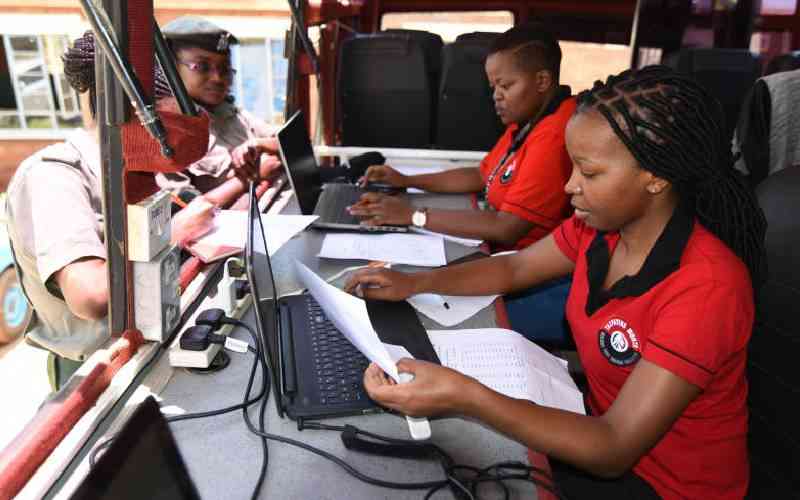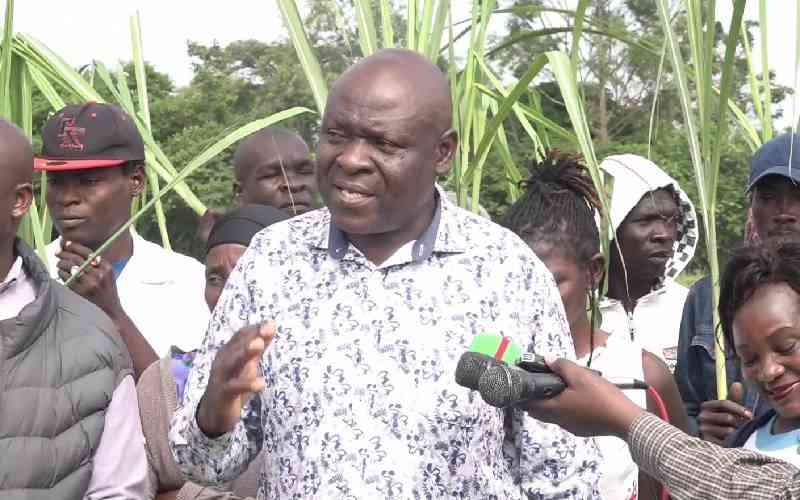Two out of every three cases of maternal deaths occur in areas affected by a humanitarian crisis or fragile conditions like North-Eastern Kenya where focus is being put to give pregnant mothers a fighting chance to survive child birth.
The region contributes close to six out of every 10 maternal deaths. Low education, low contraceptive use, inimical cultures such as Female Genital Mutilation and child marriage that derail women's self-determination and inadequate health services have kept the region perpetually posting poor health indicators.
For over a year, the United Nations Population Fund (UNFPA) has worked with partners UNICEF, WHO, World Bank, UN Women and UNAIDS to find ways of saving lives at childbirth and meeting related challenges of reproductive health in the six counties bearing the greatest burden of maternal deaths.
The government of Denmark supports UNFPA's programmes globally and in Kenya this support is based on a Denmark-Kenya Country Programme 2016-2020 that seeks to give momentum to Kenya's Vision 2030.
The policy's thematic programme on health specifically identifies operational support for primary health-care facilities at county and national government levels as well as support for sexual and reproductive health and rights.
Thus, Denmark is committed to supporting UNFPA to further their ongoing work in Mandera, Marsabit, Wajir, Isiolo, Lamu and Migori to deliver a comprehensive package of services in reproductive, maternal, new-born, child and adolescent health.
Denmark has pledged $6 million to help the six counties give more focus on adolescent girls and young women, through targeted and evidence-based interventions in multiple sectors. Of key concern will be addressing drivers for early sexual debut among adolescent girls and boys, early childbearing and early marriage, and advocating for keeping girls in schools.
In a demonstration of how collaboration in development work must be done going forward, various private sector partners have joined efforts in the 6 counties.
Though it is the right thing to do, this partnership is not driven by moral positions, but concrete evidence that reducing maternal and new-born deaths is the smartest investment for turning around the fortunes of poor economies.
Our observations show that no complex undertakings are required to make real difference; simple interventions such as ensuring more women give birth through a skilled attendant greatly increase chances of survival for mother and baby.
It is about convincing communities to eschew practices such as FGM and early marriages that invariably rob them of their childhoods, forcing them out of school, trapping them in poverty, and putting them at high risk of dangerous pregnancy and childbirth.
It is about empowering women to plan whether and when to have children. It is also about exploiting local resources, working with structures that local communities are comfortable with. In Wajir County for instance, local community health volunteers have been trained to identify pregnant women within clusters of around 10,000 people, and link them to the health facilities to receive antenatal care services.
The volunteers provide health education to the pregnant mothers on the importance of antenatal care services, the knowledge and importance on how to recognise danger signs during pregnancy, during delivery and post-delivery.
Already, deliveries under skilled care are going up, anchored by the Government's free maternity care scheme.
Global data shows that the highest benefits from reducing unintended pregnancies would accrue to the poorest countries, with GDP increases ranging from one to eight percent by 2035. There are few interventions that would give as wide-reaching impacts.
Stay informed. Subscribe to our newsletter
 The Standard Group Plc is a
multi-media organization with investments in media platforms spanning newspaper
print operations, television, radio broadcasting, digital and online services. The
Standard Group is recognized as a leading multi-media house in Kenya with a key
influence in matters of national and international interest.
The Standard Group Plc is a
multi-media organization with investments in media platforms spanning newspaper
print operations, television, radio broadcasting, digital and online services. The
Standard Group is recognized as a leading multi-media house in Kenya with a key
influence in matters of national and international interest.
 The Standard Group Plc is a
multi-media organization with investments in media platforms spanning newspaper
print operations, television, radio broadcasting, digital and online services. The
Standard Group is recognized as a leading multi-media house in Kenya with a key
influence in matters of national and international interest.
The Standard Group Plc is a
multi-media organization with investments in media platforms spanning newspaper
print operations, television, radio broadcasting, digital and online services. The
Standard Group is recognized as a leading multi-media house in Kenya with a key
influence in matters of national and international interest.








